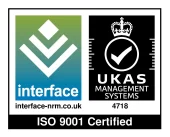In the evolving landscape of manufacturing, the UK stands at the forefront of technological innovation, particularly in metal plating services. This article delves into the transformative innovations in metal plating and how they are driving the future of manufacturing. From the cutting-edge techniques in metal finishing services to the specific advancements in tin plating, we explore how these developments are shaping the industry and the products of tomorrow.
Advancements in Metal Plating Services
Metal plating is a process that involves coating a substrate, usually a metal, with a thin layer of another metal through chemical or electrochemical processes. The primary goal of metal plating services is to enhance the properties of the substrate, such as corrosion resistance, durability, and aesthetic appeal.
One of the significant advancements in this field is the development of environmentally friendly plating processes. Traditional metal plating methods often involve hazardous chemicals that pose environmental and health risks. Innovations in this area focus on reducing or eliminating toxic substances, thereby creating safer working conditions and minimising environmental impact.
Moreover, precision in metal plating has reached new heights. Modern technologies allow for uniform coatings at the micron level, ensuring high-quality finishes that meet stringent industry standards. This precision is crucial in industries such as aerospace, automotive, and electronics, where even minor imperfections can lead to significant performance issues.
The Role of Tin Plating in Modern Manufacturing
Tin plating is one of the most widely used metal finishing services due to its excellent corrosion resistance, solderability, and non-toxicity. In the UK, tin plating has seen remarkable advancements, making it an integral part of the manufacturing process for various products, including ILF products (inductors, capacitors, and filters).
The demand for tin plating UK services has surged, particularly in the electronics industry. Tin’s superior conductivity and ability to form strong, reliable solder joints make it indispensable for manufacturing electronic components. Innovations in tin plating techniques have further enhanced these properties, leading to more durable and efficient electronic devices.
Additionally, tin plating is crucial in the food and beverage industry, where it is used to coat containers and packaging materials. The non-toxic nature of tin ensures that food products remain safe for consumption, while the corrosion resistance of tin-plated surfaces prolongs the shelf life of packaged goods.
The Impact of Metal Finishing Services on Product Development
Metal finishing services encompass a broad range of techniques, including anodizing, electroplating, and coating, each tailored to specific applications. These services play a pivotal role in product development by improving the functional and aesthetic properties of components.
In the automotive industry, for example, metal finishing is essential for enhancing the durability and appearance of vehicle parts. Advanced plating techniques are used to protect components from harsh environmental conditions, thereby extending their lifespan and maintaining their visual appeal.
Similarly, in the aerospace sector, metal finishing services are critical for ensuring the safety and performance of aircraft components. High-precision plating techniques help in achieving the necessary standards for aerospace parts, which must withstand extreme conditions and rigorous usage.
Innovations Driving the Future of Metal Plating
The future of metal plating in the UK looks promising, with several innovations set to drive the industry forward. One such innovation is the development of nano-coatings. These ultra-thin layers of metal offer exceptional protection against corrosion and wear while being virtually invisible to the naked eye. Nano-coatings are particularly beneficial in industries where maintaining the original appearance of the product is crucial, such as luxury goods and consumer electronics.
Another exciting development is the use of additive manufacturing, or 3D printing, in metal plating. This technology allows for the creation of complex geometries and customised plating solutions that were previously unattainable. By integrating 3D printing with traditional plating methods, manufacturers can achieve higher levels of precision and efficiency.
Furthermore, the adoption of Industry 4.0 technologies, such as the Internet of Things (IoT) and artificial intelligence (AI), is revolutionising metal plating services. IoT-enabled plating systems provide real-time monitoring and control of the plating process, ensuring consistent quality and reducing waste. AI algorithms can optimise plating parameters and predict maintenance needs, leading to increased productivity and reduced downtime.
Metal Plating UK: A Hub for Innovation
The UK has emerged as a hub for innovation in metal plating, with numerous companies and research institutions leading the charge. Collaboration between industry and academia has resulted in groundbreaking research and the commercialisation of new technologies.
Government support for innovation in manufacturing has also played a crucial role. Initiatives aimed at promoting sustainable practices and funding for research and development have accelerated the adoption of advanced metal plating techniques.
Embracing the Future of Manufacturing
Innovations in metal plating services are driving the future of manufacturing in the UK, offering enhanced performance, sustainability, and efficiency. From the advancements in tin plating UK services to the broader spectrum of metal finishing techniques, these developments are revolutionising how products are made and improving their quality and durability.
As the industry continues to evolve, embracing these innovations will be key to maintaining a competitive edge in the global market. The future of manufacturing lies in the continuous improvement of processes and the adoption of cutting-edge technologies, ensuring that the UK remains a leader in this vital sector.
Milly Edwards
Sales and Marketing Executive: Responsible for creating content for ILF's social media channels, website, print media and promotional work.








